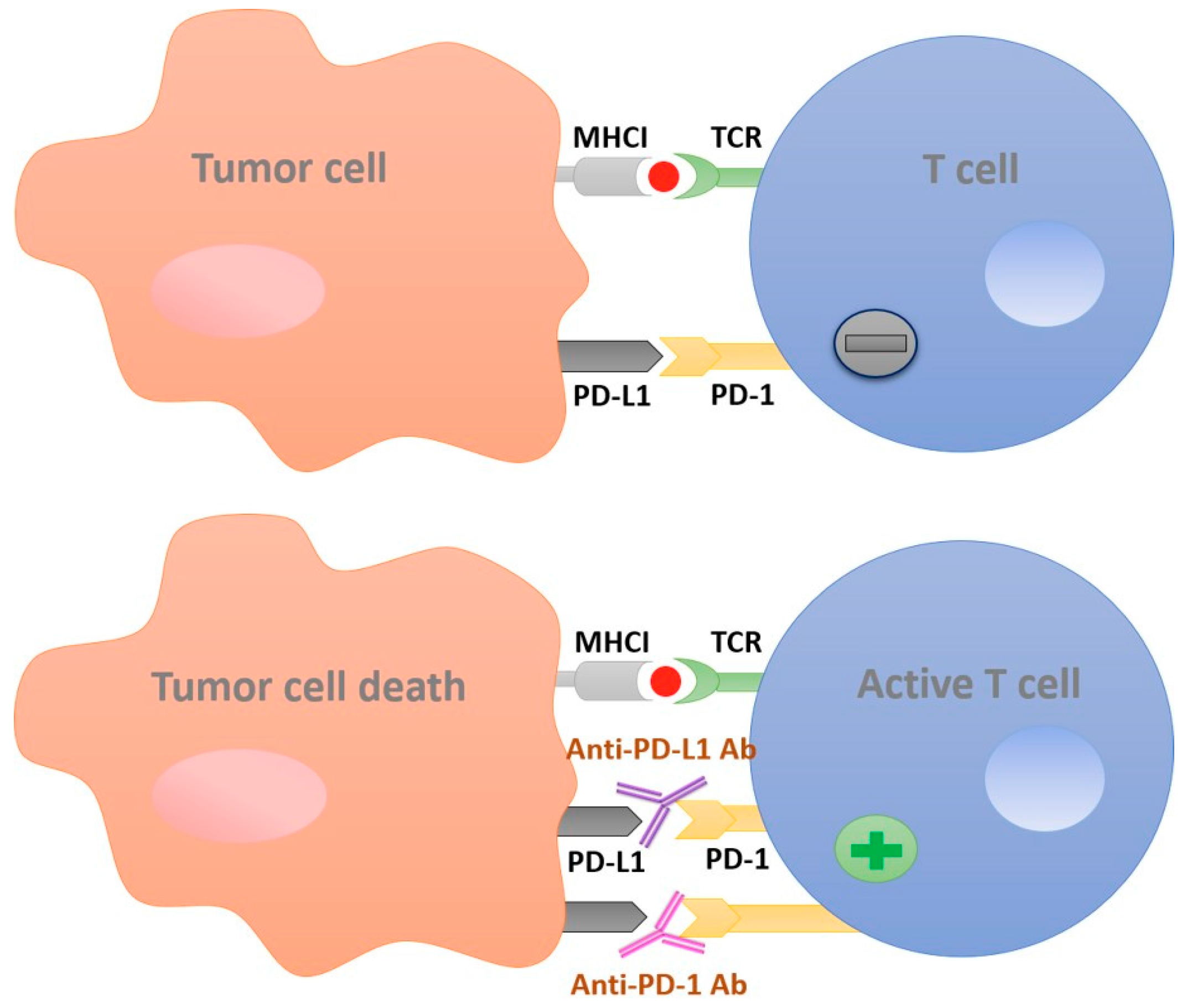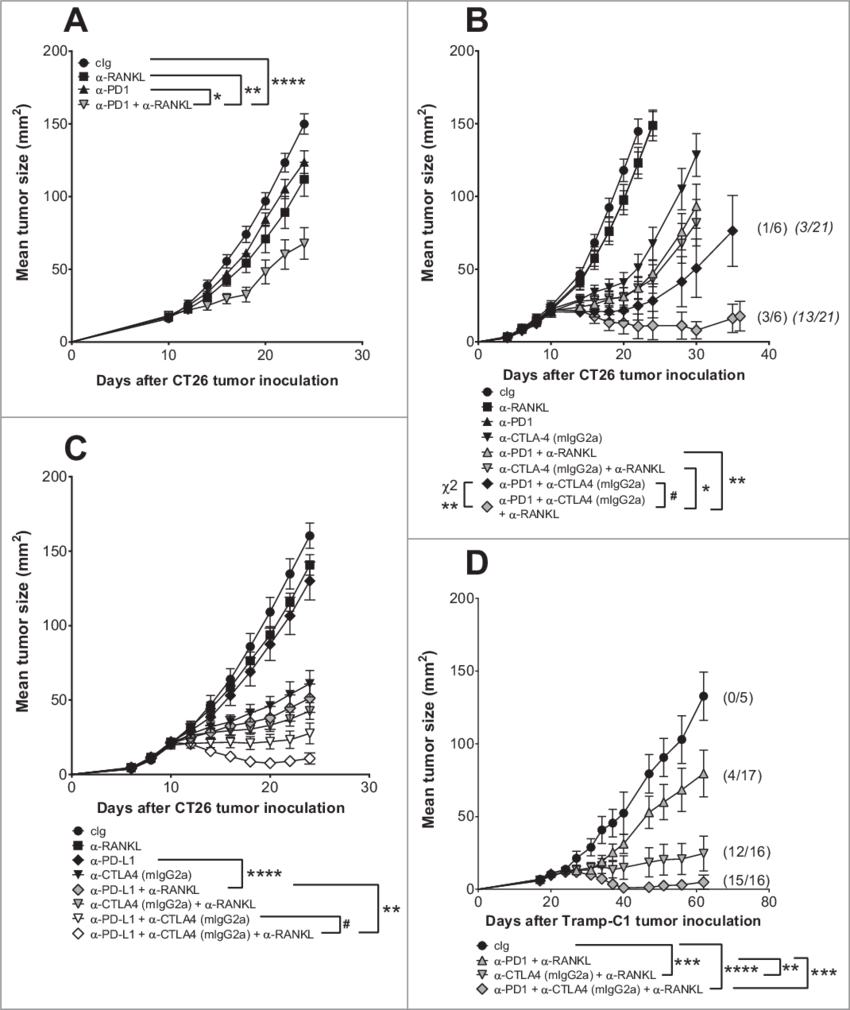The PD-1 (programmed cell death-1) receptor is expressed on the surface of activated T cells. Its ligands, PD-L1 and PD-L2, are expressed on the surface of dendritic cells or macrophages. PD-1 and PD-L1/PD-L2 belong to the family of immune checkpoint proteins that act as co-inhibitory factors that can halt or limit the development of the T cell response. The PD-1/PD-L1 interaction ensures that the immune system is activated only at the appropriate time in order to minimize the possibility of chronic autoimmune inflammation.

The PD-1/PD-L1 pathway represents an adaptive immune resistance mechanism exerted by tumor cells in response to endogenous immune anti-tumor activity. PD-L1 is overexpressed on tumor cells or on non-transformed cells in the tumor microenvironment. PD-L1 expressed on the tumor cells binds to PD-1 receptors on the activated T cells, which leads to the inhibition of the cytotoxic T cells. These deactivated T cells remain inhibited in the tumor microenvironment.
Monoclonal antibody therapies against PD-1 and PD-L1 are being routinely used including:
There are several other immunotherapy options being used or in development.
The efficiency of the immune checkpoint blockade with monoclonal antibodies in cancer treatment is remarkable, but not all patients respond to a single therapy. To enhance and broaden the anti-tumor activity of immune checkpoint inhibition the next step is combining agents with synergistic mechanisms of action. An example of this is the success of the combination of PD-1/PD-L1 inhibition blockage with complementary checkpoint inhibitor CTLA-4 in melanoma and non-small cell lung cancer.
 Co-targeting of RANKL with PD1/PD-L1 alone or in combination with CTLA4 suppresses subcutaneous tumor growth.
Co-targeting of RANKL with PD1/PD-L1 alone or in combination with CTLA4 suppresses subcutaneous tumor growth.
BioCytoceuticals leads the industry in cellular therapy with commitment to providing the most appropriate solutions to address the needs of our clients. Our expert team of scientists applies comprehensive methods and the most detail-oriented scrutiny to ensure only top-tier outcome is submitted. We provide comprehensive services and products for customer, including humanized mouse models and their related services.
If you have any special enquiries regarding our Immune Checkpoint Inhibitor service, please do not hesitate to contact us. Our highly professional technical supporting staffs will make sure your requests are faithfully received. We are looking forward to earning your business.
Inquiry